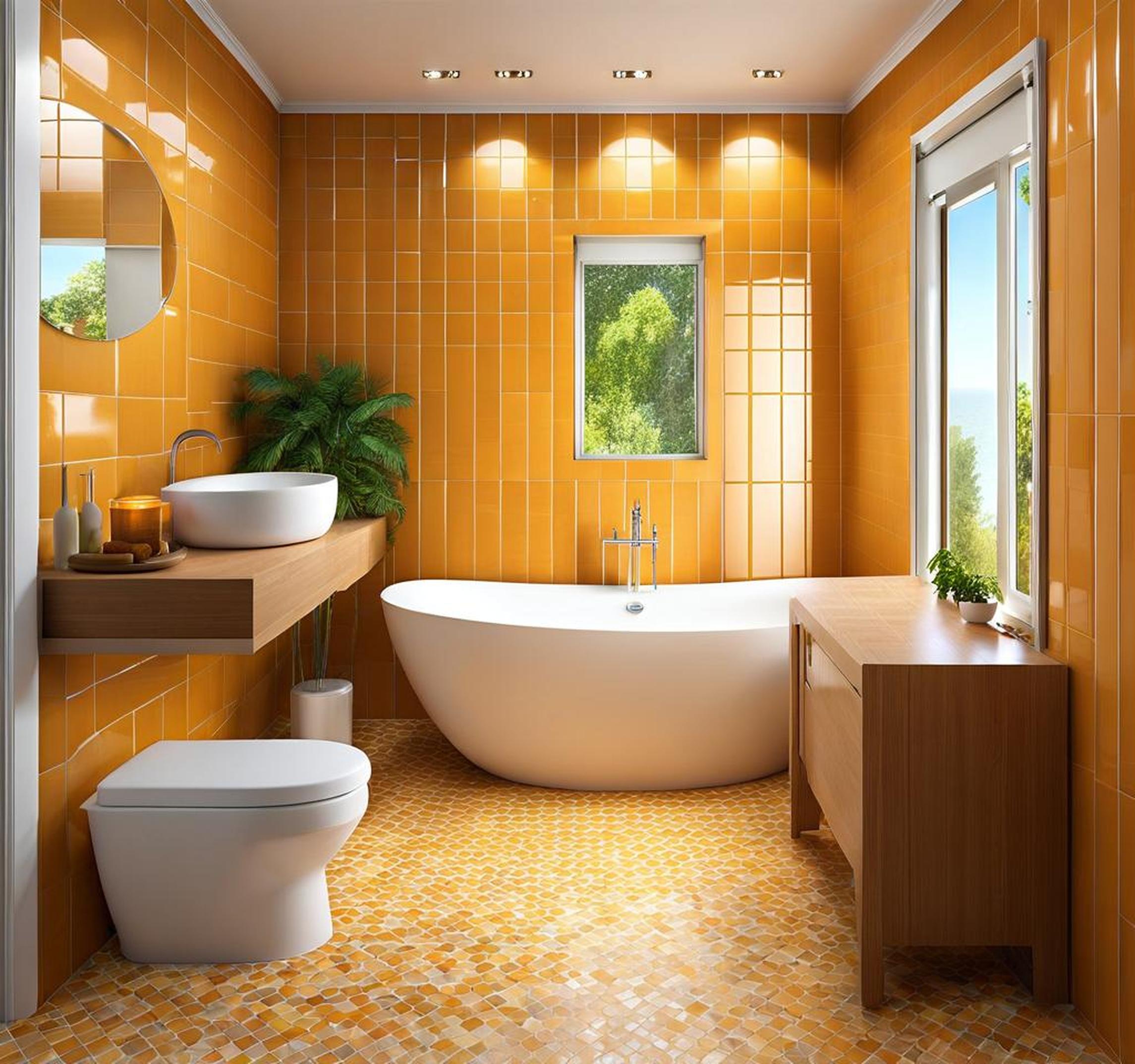Is your bathroom stuck in the past with outdated, worn-out tile that makes the space seem dated and dreary? Replacing bathroom tiles can be an expensive and messy endeavor. Fortunately, there are some clever options for covering up existing tiles that don’t involve prying them off the walls. Painting tiles or installing tile effect panels can give your bathroom a fresh new look without the headaches of a full renovation.
We’ll weigh the pros and cons of each approach to help you determine the best DIY solution for your needs and budget.
An Overview of Options for Covering Tiles
When it comes to covering up old, unsightly bathroom tiles, two of the most popular and affordable options include:

- Painting – Applying specialized tile paint in layers with primer, finish coat(s), and sealant
- Panels – Installing waterproof PVC, acrylic, or polymer tile effect panels over the existing walls
Paint can give a fresh facelift to tile surfaces and grout lines. Meanwhile, large panels can fully cover walls and create a whole new tiled look. Both options allow you to upgrade the style without tedious demolition.
Below we dive deeper into how each method works, costs, skill level, and results.
Painting Over Bathroom Tiles
With the right supplies and techniques, almost any tile surface can get a makeover with paint. Here’s an overview of how to transform tiles through painting:
Supplies Needed
To properly prep and paint bathroom tiles, you’ll need:
- Tile paint or epoxy paint
- Paint primer
- Paintbrushes and rollers
- Grout
- Sealant/polyurethane
Step-by-Step Process
Painting over tiles involves careful prep and applying paint in layers. The basic process includes:
- Clean and scuff up the tile surface
- Apply a coat of paint primer
- Paint on the first layer of tile paint
- Let paint fully dry
- Apply a second coat of paint
- Allow paint to dry completely again
- Apply a clear acrylic sealer/polyurethane
- Regrout tiles
Properly prepping the surface and allowing adequate dry time between paint coats are key for achieving long-lasting results.
Tips for Best Results
Follow these tips when painting over existing bathroom tiles:
- Use an epoxy or two-part paint made specifically for high-moisture tile areas
- Apply thin coats of paint instead of globbing it on thick
- Allow for longer drying times than the label states before adding more paint layers
Pros and Cons of Painting Tiles
Some benefits and downsides of painting over bathroom tiles include:
| Pros | Cons |
|---|---|
| Cheap compared to re-tiling | Doesn’t improve flawed or uneven tiles |
| Wide range of color options | Prone to chipping or peeling over time |
| Adds bold patterns with stencils | Not as waterproof as panels |
Installing Tile Effect Panels
Bathroom tile effect panels can adhere right over your existing walls or flooring. Here’s an overview on tile panels:
Types of Panels
Tile effect panels come in a few common materials:
- PVC – Most affordable option; easy for DIY
- Acrylic – More durable with some flex
- Polymer – Most waterproof with thicker build
Size and Style Choices
Panels for bathrooms are available in many dimensions, finishes, and patterns – from neutral tiles to natural stone and marble looks. Standard sizes range from 30 x 30cm up to large sheets measuring 60 x 240 cm.
Installation Process
Installing new panels over existing tiles involves:
- Taking accurate measurements
- Carefully cutting panels to fit
- Cleaning and preparing the wall surface
- Applying strong panel adhesive
- Pressing panels into place
- Sealing edges and gaps with silicone
- Reapplying grout between panels
Pros and Cons of Tile Panels
Key benefits and potential drawbacks of tile effect panels include:
| Pros | Cons |
|---|---|
| Waterproof surface for wet areas | Some skill needed for custom cuts |
| Sleek integrated designs | Visible seams between panels |
| Wide range of looks | Prone to damage from improper cleaning |
Choosing the Best Option for Your Bathroom
Is painting or paneling the better choice for covering your outdated or discolored tiles? The right option depends on a few key factors:
Budget
Painting tiles comes in around $2-6 per square foot . Complete panel systems cost $15-25 per square foot on average. Keep available funds in mind.
Existing Tile Condition
If underlying tiles are very cracked, uneven, or have significant damage, panels may be better to fully cover up flaws. Paint works best on tiles that just look outdated or discolored but have a relatively smooth surface.
Skill Level
Painting tile surfaces takes more prep work but doesn’t require special skills. Installing bathroom panels has a learning curve for measuring, cutting, and fitting properly. Consider your DIY comfort level.
Tips and Tricks for Covering Tiles
Here are some additional pointers to help your tile covering project go smoothly:
Clean and Protect Your Makeover
Use gentle cleaners without abrasives to keep your painted or paneled surfaces looking fresh. Reseal painted tiles every 1-2 years for protection.
Get Creative with Finishing Touches
Take your makeover to the next level by:
- Stenciling painted tiles for pops of color or patterns
- Accenting with mosaic sheets on one wall
- Adding tile borders for definition
Covering outdated bathroom tiles with paint or panels allows you to revamp the style on a reasonable budget. Evaluate your goals, problem areas, skill set and resources to decide the best approach. With some diligent prep work and patience during application, you can complete a beautiful, water-resistant makeover in less time and money than replacing all the tile.
